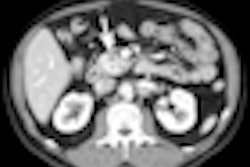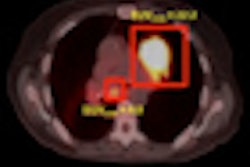Cancer patients with brain metastases that recur after initial radiotherapy don't have long to live. Is reirradiation worthwhile? A study published online February 9 in the Japanese Journal of Clinical Oncology determined that this treatment extended life only by several months and caused a high level of lethargy.
Radiation oncologists at Tokai University retrospectively analyzed the records of 31 patients treated between January 1994 and December 2009 who had undergone whole-brain irradiation two or more times due to relapse or recurrence of metastatic brain tumors. The group wanted to determine whether reirradiation was beneficial.
The patients ranged in age from 38 to 74 years, with a median age of 56. Their Karnofsky performance status ranged from 40 to 90, with a median of 60. More than 80% of the patients had developed brain metastases from lung cancer; the remainder developed the metastases from breast cancer.
The majority of patients had received an initial radiation dose of 30 Gy delivered in 10 fractions, and this dose was repeated for almost half of the group. All but one of the remainder received lower radiation doses based on their clinical condition and ability to undergo treatment. Five patients had partial brain boost irradiation delivering 9 Gy to 27 Gy in three to nine fractions. All but one patient also had chemotherapy.
The rate of symptomatic improvement as a result of reirradiation was 68%. More than half of the patients demonstrated a partial or complete tumor response.
However, the patients survived only a median of four months. Half of them experienced acute grade 1 toxicities, primarily headaches and nausea. Three-fourths of the patients' brains atrophied after treatment, and one-third experienced cognitive disturbances and lethargy.
Was this treatment beneficial? It was useful for symptomatic palliation, and for some of the patients, it may have contributed to long-term survival, according to radiation oncologist Dr. Takeshi Akiba and colleagues. With this small group of patients, the location of the primary cancer and a Karnofsky performance status of 70 or greater at the time of the second radiotherapy treatment were significant factors for survival.



















